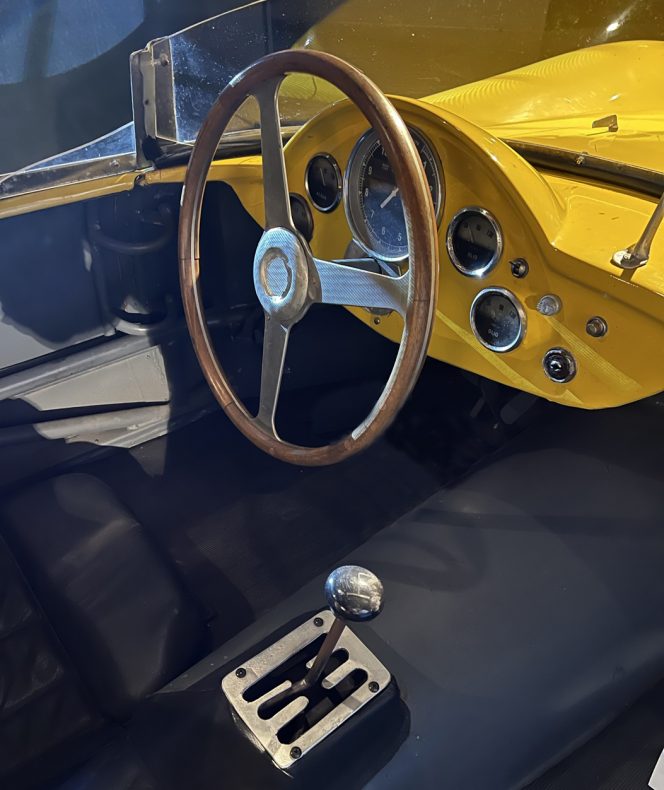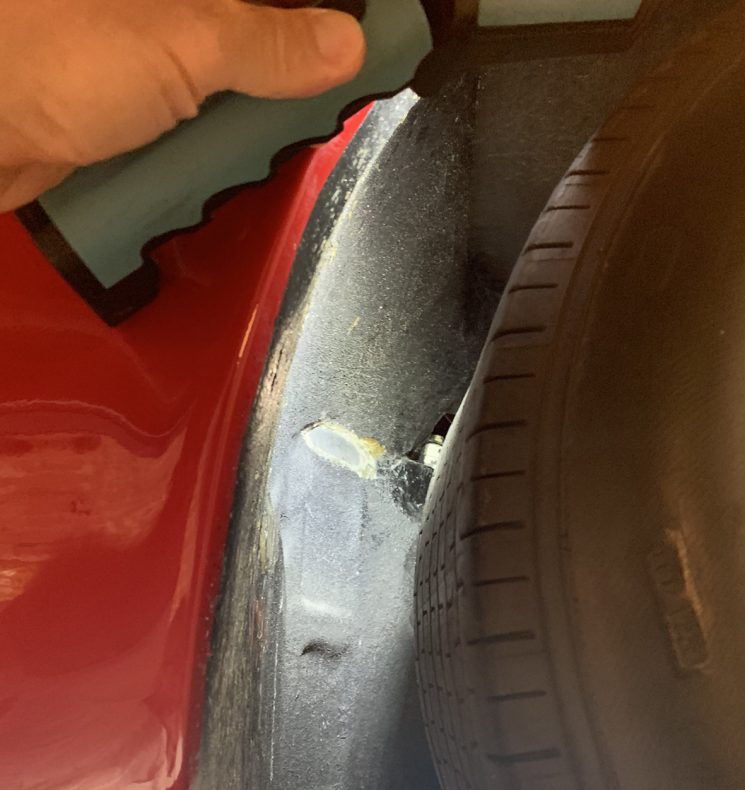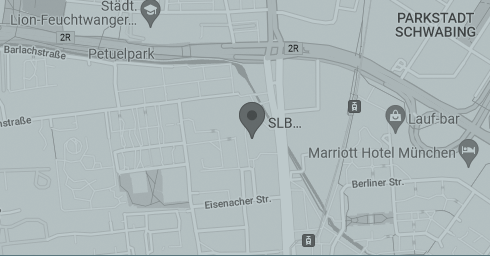
Faked classic cars – what rights does the buyer have in Germany?
Valuable vintage cars and classic racing cars are not only a joy for collectors. They almost always represent an alternative form of investment. And rightly so, says German lawyer Dr. Louis Ronsberg, who specializes in classic car law. Because prices have continued to rise in recent years. Especially in the luxury segment of classic Ferraris, Porsches, Mercedes and the like. It is all the more annoying when the suspicion suddenly arises that it could be a faked classic car. But what should you do if you have bought a faked classic car in Germany?
A current example is the suspicion of forgery regarding numerous Mercedes 300 SL “Gullwing” and Roadster in Germany. According to press reports, the now insolvent German classic car company Kienle Automobiltechnik GmbH is said to have sold them. The fraud trial concerning 20 allegedly counterfeit Porsches, including a 917, was also heard in a prominent case in Germany. The defendant is said to have sold some of them for millions.
But what are the conditions that have to be met before a classic car can be called a “fake”? And what rights does the buyer of a classic car forgery have? The German lawyer Dr. Louis Ronsberg, is familiar with these issues from his daily practice. He has been representing clients in court regarding counterfeit classic cars for many years.

When is a vintage car considered a “fake”?
There is no fixed formula for determining when a classic car can be considered a “fake”. It depends on the individual case: how many parts of the vehicle were not installed by the manufacturer? Where do these parts come from? What is the significance of these parts in the vehicle? Particularly important are the chassis and frame, the engine and the transmission. But the most important criterion is the vehicle identification number, the “VIN”.
A faked classic car in Germany can also be created by assembling a vehicle from the original parts of different vehicles. The reason may be insurance fraud or that the vintage cars have been reported stolen. A fake car is also created, if markings on the parts are “reversed”. This is to create the impression that it is a different vehicle or that the classic car has “matching numbers”. Often the chassis number, serial numbers, part numbers, model numbers or dates are changed.
However, according to German lawyer Dr. Ronsberg, the essential feature of a fake is always the intention to deceive other people as to the originality of the vehicle. As long as it is clear that it is a reproduction or an imitation, it is not referred to as a counterfeit classic car, but as a “replica”. But if a manufacturer’s mark or a chassis number is added to a replica at a later date, it becomes a counterfeit classic car.
Faked classic car deemed material defect under German law
If it is determined that a vintage car is a fake, the next question is what rights the buyer has against the seller. Even a missing “matching numbers” usually represents a massive loss in value. The historical value of the vehicle also decreases. One consequence may be the loss of a less favorable vintage registration or tax benefits, or denial of admission to certain vintage events. The buyer would then like to withdraw from the purchase contract or reduce the purchase price accordingly.
As with all purchased items, the first question that arises with counterfeit vintage cars is whether there was a “material defect” within the meaning of Section 434 of the German Civil Code (BGB) at the time of the transfer of risk. That, in turn, depends largely on the content of the purchase agreement. According to Section 434 (2) no. 1 BGB, a defect of sale exists if an “agreed quality”, for example originality or matching numbers, is missing. If the parties have not made any agreement in the contract regarding originality, then no defect can be inferred from this.

No agreement on the originality of the classic car
But what if the vehicle is described in the purchase contract as a “classic car” or “historic racing car”? These terms alone say little about the originality. However, if the purchase contract states “original condition” or “matching numbers”, these assurances must also apply. According to Dr. Ronsberg, the requirements catalogue of the TÜV (German vehicular inspection and product certification services) for the assessment of classic cars in accordance with § 23 StVZO can also provide clues as to what is meant by a “classic car”.
And if the contract contains no agreements at all about the originality of the vintage car? According to German law, an object of purchase is also defective if it is not suitable for “ordinary use” or if it lacks the properties that the buyer can expect from comparable items (Section 434 (3) (2) BGB). For example, a faked classic car in Germany may not be suitable for certain classic car races where only originals are allowed under the regulations.
In the experience of German lawyer Dr. Ronsberg, each individual case must be examined to determine whether or not a purchase defect can be derived from German case law on classic car forgeries. The short limitation period of Section 438 (1) no. 3 of the German Civil Code (BGB) must also be taken into account. This is only two years and begins with the delivery of the item. If the lack of originality is discovered, the buyer should therefore have the limitation period checked without delay. If necessary, measures should be taken to prevent the limitation period from expiring.
Obligation to inspect and give notice of defects
The matter is particularly delicate if the buyer is a merchant and the purchase is part of his commercial business. In this case, German law requires the buyer to inspect the vehicle “without delay” after delivery and to report any defects immediately (Section 377 of the German Commercial Code). Otherwise, the vehicle is deemed to have been approved and the buyer can no longer claim that the classic car is not original. “Without delay” means “without undue delay” (Section 121 (1) sentence 1 of the German Civil Code).
In this context, the German lawyer Dr. Ronsberg,who specializes in German vintage car law, points out that the same may apply if the collector did not purchase the classic car in person but through a holding company. This is because, according to § 6 para. 1 of the German Commercial Code (HGB), the provisions for merchants are automatically applicable to companies such as a limited liability company or a stock corporation. The same often applies to cross-border contracts in accordance with Art. 38 and 39 CISG, unless the UN Sales Convention has been explicitly excluded in the purchase contract.
The buyer does retain his rights if it was not possible to recognize that the classic car was a fake during the inspection (Section 377 (2) HGB). However, according to German case law, the buyer is obliged to consult an appropriate expert when purchasing complex items. If a company or a merchant buys a valuable classic car, it is therefore advisable to immediately commission a classic car expert to verify its originality and to document the commissioning and verification in writing, says German lawyer Dr. Ronsberg.
Malicious deception about faked classic cars in Germany
If the buyer was deliberately deceived about the lack of originality of the classic car, he can contest the purchase contract under German law and demand a refund of the purchase price (Section 123 (1) BGB). This right is subject to a limitation period of one year from the time of discovery of the deception and a maximum of ten years (Section 124 BGB). Since the period begins only with the knowledge, it is in practice considerably longer than the two-year limitation period for purchase defects, which is independent of knowledge.
However, the requirements for a challenge on the grounds of fraudulent misrepresentation under German law are considerably higher, as German lawyer Dr. Ronsberg knows. “Malice” does not presuppose fraud or a reprehensible attitude on the part of the deceiver. Nor is an intention to cause damage or enrichment necessary; conditional intent is sufficient. In court proceedings, however, proof of fraudulent intent is usually difficult to establish, since the seller regularly claims that he did not recognize the forgery himself.

Compensation for fraud with a faked classic car in Germany
Finally, buyers of faked classic cars in Germany can also have a claim for damages against the seller under German law if fraud can be proven under criminal law (Section 823 (2) BGB in conjunction with Section 263 of the German Criminal Code (StGB). Similar to the contestation on the grounds of fraudulent misrepresentation, however, the buyer must then prove in a civil action in Germany that the seller has committed fraud. Here, too, the question is whether the buyer can prove that the seller was aware that the goods were counterfeit and deceived the buyer about this.
In practice, therefore, if there is a specific suspicion of fraud, it can be useful and helpful to file a criminal complaint and, if possible, to support the investigating authorities in their investigations, also with a view to civil proceedings in Germany. If a criminal court convicts the seller of fraud, the claim for damages under tort law is obvious. However, here too, the statute of limitations under civil law should be borne in mind. Although it is dependent on knowledge, it is only three years under German law.

German attorney Dr Louis Ronsberg, German classic car law expert
Conclusion regarding faked classic cars in Germany
If a buyer finds out that he has purchased a fake classic car in Germany, he should act quickly. First of all, a lawyer specializing in German classic car law should check the statute of limitations and the contestation periods. Then, on a case-by-case basis, the lawyer should determine which claims are possible and what the prospects of success are, based on the German court rulings on fake vintage cars.
The German lawyer Dr. Louis Ronsberg, who specializes in German classic car law, has been representing clients in the case of faked classic car in Germany for many years and is familiar with the specific case law.
Contact us now and let us clarify together what rights you have and what we can do for you. Call German lawyer Dr. Louis Ronsberg now without obligation under +49-89-5124270 or send a non-binding message to roensberg@slb-law.de.
Author of the article

Dr. Louis Rönsberg
Rechtsanwalt (Lawyer), Partner
Certified Specialist Lawyer for Banking and Capital Market Law
(Fachanwalt für Bank- und Kapitalmarktrecht)
Certified Specialist Lawyer for Corporate and Commercial Law
(Fachanwalt für Handels- und Gesellschaftsrecht)











